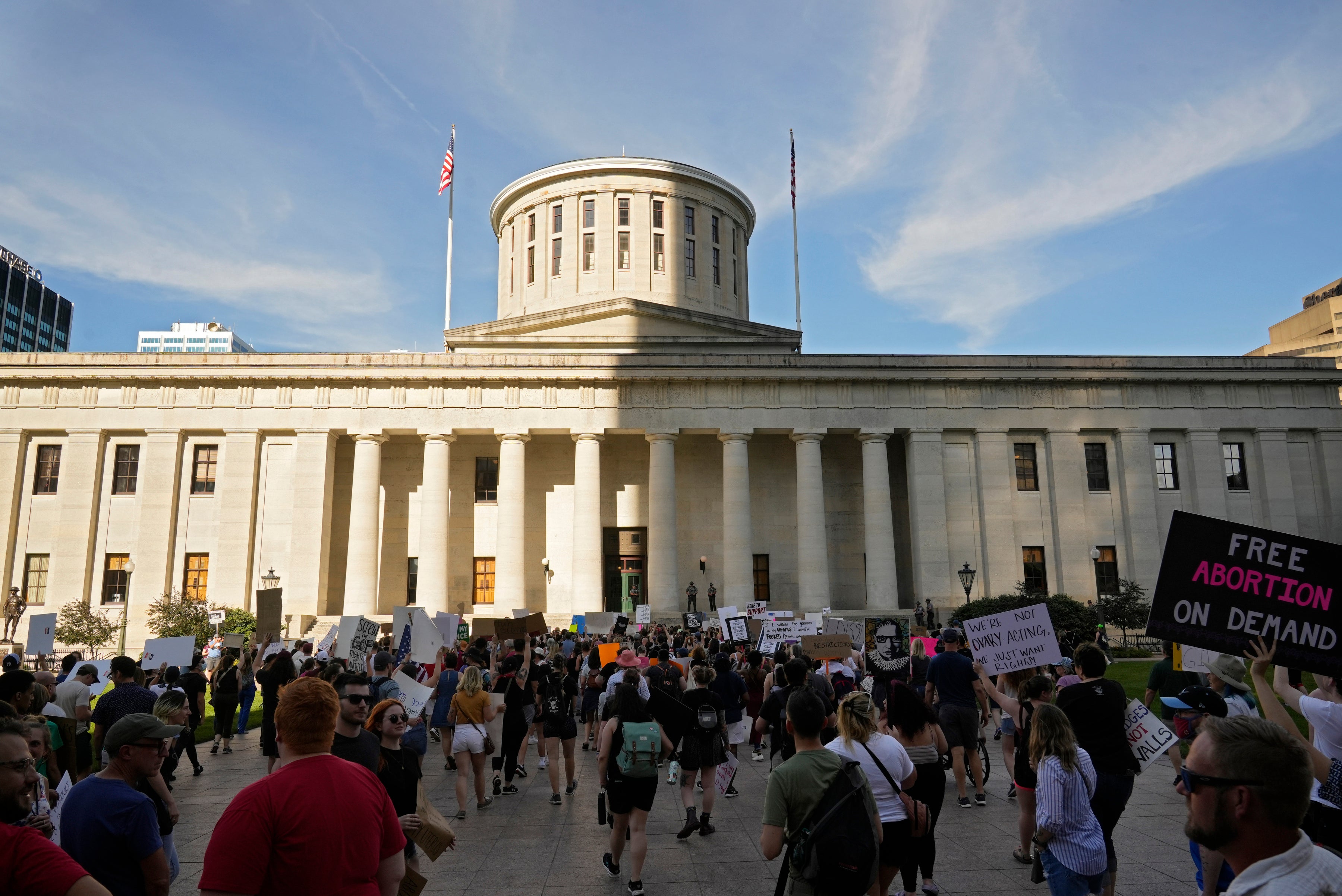Two more children forced to travel out of Ohio for abortions after being raped, records show
In some instances, cancer patients who were denied treatment because of their pregnancies were also unable to receive abortions, an affidavit alleges
Your support helps us to tell the story
From reproductive rights to climate change to Big Tech, The Independent is on the ground when the story is developing. Whether it's investigating the financials of Elon Musk's pro-Trump PAC or producing our latest documentary, 'The A Word', which shines a light on the American women fighting for reproductive rights, we know how important it is to parse out the facts from the messaging.
At such a critical moment in US history, we need reporters on the ground. Your donation allows us to keep sending journalists to speak to both sides of the story.
The Independent is trusted by Americans across the entire political spectrum. And unlike many other quality news outlets, we choose not to lock Americans out of our reporting and analysis with paywalls. We believe quality journalism should be available to everyone, paid for by those who can afford it.
Your support makes all the difference.At least two more minors have been forced to travel out of state to terminate pregnancies resulting from rapes, according to medical staff’s affidavits filed in an ongoing lawsuit against Ohio’s attorney general.
The accounts, first reported on by the Ohio Capital-Journal, have emerged more than three months after the case of a 10-year-old Ohio sexual assault victim made national headlines when it was revealed she had to travel to Indiana to get an abortion. The Indianapolis Star reported that the girl was six weeks and three days pregnant and couldn’t get an abortion due to the state’s Heartbeat Law, which prevents medical staff from performing the procedure if a heartbeat is found.
The law was signed in 2019 by Ohio Attorney General Dave Yost but only came into effect when the landmark Roe v Wade was overturned in July by the Supreme Court. Now, medical officials have attested in court filings to the catastrophic effects of the Heartbeat Law on women seeking abortions, especially on at least two other minors who were sexually assaulted and had to travel out of state to terminate their pregnancies.
Doctors also brought up cases in which women who were denied abortions later attempted suicide. In some instances, cancer patients who were denied treatment because of their pregnancies were also unable to receive abortions, the affidavit stated.
Although the Heartbeat Law allows health professionals to perform abortions in cases of medical emergencies and when the life of the mother is in danger, the exceptions are not thoroughly explained and could lead to criminal penalties and licences being revoked, oftentimes leaving staff stuck in a dilemma.
The affidavits were filed in the ongoing case between reproductive health clinic Preterm-Cleveland and the attorney general.
According to the Ohio Capital-Journal’s report, more than 600 abortion appointments had to be cancelled in the aftermath of the Roe v Wade overruling.
“We have had at least three patients threaten to commit suicide. Another patient said she would attempt to terminate her pregnancy by drinking bleach,” medical director of Planned Parenthood Southwest Ohio Sharon Liner said in one of the affidavits, the Ohio Capital-Journal reported.
“Another asked how much Vitamin C she would need to take to terminate her pregnancy.”
In one of the cases, a minor travelled to Michigan to access abortion care, which “further exacerbated [her trauma] by needing to wait over three weeks for her appointment.”

“In each step of this process, she felt the complete denial of bodily autonomy and safety, something all people, especially children, should unequivocally have at all times,” read the affidavit by Adarsh E Krishen, chief medical officer for Planned Parenthood of Greater Ohio, according to the Ohio Capital-Journal report.
An operation manager at a women’s health centre in Dayton also filed an affidavit stating that a 16-year-old had to travel to Indianapolis, Indiana, to get an abortion after she was raped by a family member.
“I am concerned that Ohio’s ban and the need to travel increasingly far distances to obtain abortion care not only causes unimaginable harm to these young victims, but could also hamper law enforcement’s ability to investigate and prosecute these cases in the future,” Aeran Trick wrote in his affidavit.
The Heartbeat Law has been temporarily halted for the second time by a county judge — this time the provision will last until mid-October, and abortions before the 20-gestational-week mark will be allowed.




Join our commenting forum
Join thought-provoking conversations, follow other Independent readers and see their replies
Comments